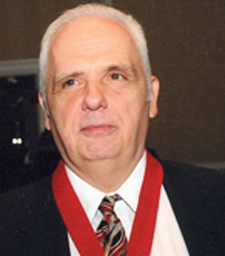Brooklyn Pol Eyes Compromise on DNA Bill

NEW YORK (AP) — Compromise legislation to double New York’s DNA database with genetic information from all felony and penal misdemeanor offenders is expected to be approved by the Legislature, according to top lawmakers and the Cuomo administration.
Assemblyman Joseph Lentol, a Brooklyn Democrat who chairs the Codes Committee, said he thinks the deal will happen, though details were being worked out. It would broaden defense access to the database but drop provisions on police interrogations and witness identification, he said.
A senior administration official, who declined to be identified because negotiations were ongoing, said that a broad agreement reached Monday night still needed to be sold to rank-and-file members of the Senate and Assembly.